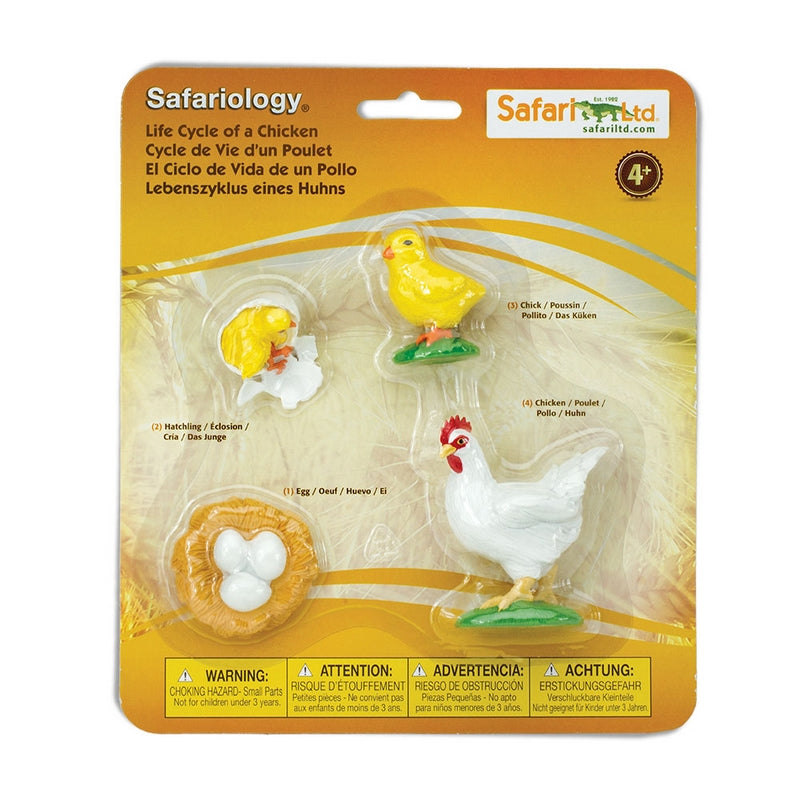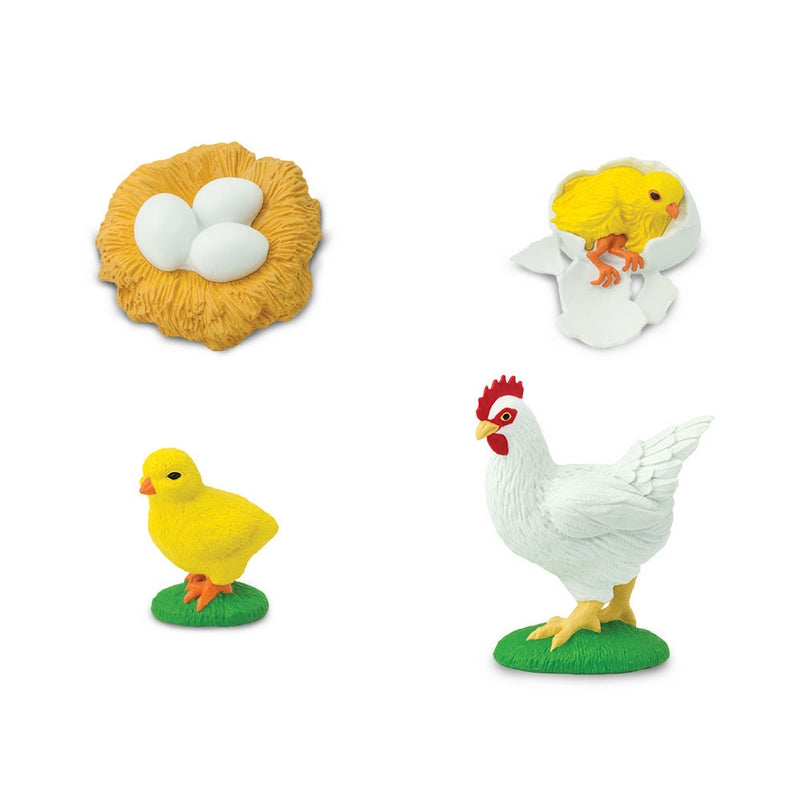- A hen may lay 300 eggs in a year, but only if a rooster is present can the eggs contain hatchlings. Eggs take 21 days to hatch, but a newly hatched chick is up and moving within a day. Within three months, the chick has lost its yellow feathers and replaced them with adult feathers, ready to start the cycle again.
-
Scientific Name: Gallus domesticus
-
Characteristics: Can’t get to a farm? Learn about the life cycle of a chicken with these easy-to-handle figures.
-
Size and Color: Bright yellow baby chicks are as cute as can be, but in only a few days, they begin losing their feathers and transitioning to adulthood. These figures show the process, right up to the 3-inch-tall adult chicken.
- The Life Cycle of a Chicken is part of the Safariology® collection.
- All of our products are Non-toxic and BPA free.
History
The domesticated chicken has a storied history going back well over 5,000 years to when it roamed free in the jungles of southeast Asia. From there it has spread to farms and backyards all over the world. Chickens weren’t originally domesticated for their eggs and meat, but for their fighting ability. By 1000 BC, domesticated chickens had spread from Asia to Egypt. By 800 BC, they’d reached around the Mediterranean Sea, filling the bellies of the Romans. Fast forward to 1990, when the chicken, once just another jungle bird, surpassed beef as the most popular meat in the United States. The chicken has crossed many, many roads.
- Recommended Age: 4+
- Size in cm: 19.5 W x 23 H
- Size in inches: 7.68 W x 9.06 H
- UPC: 609366662817



